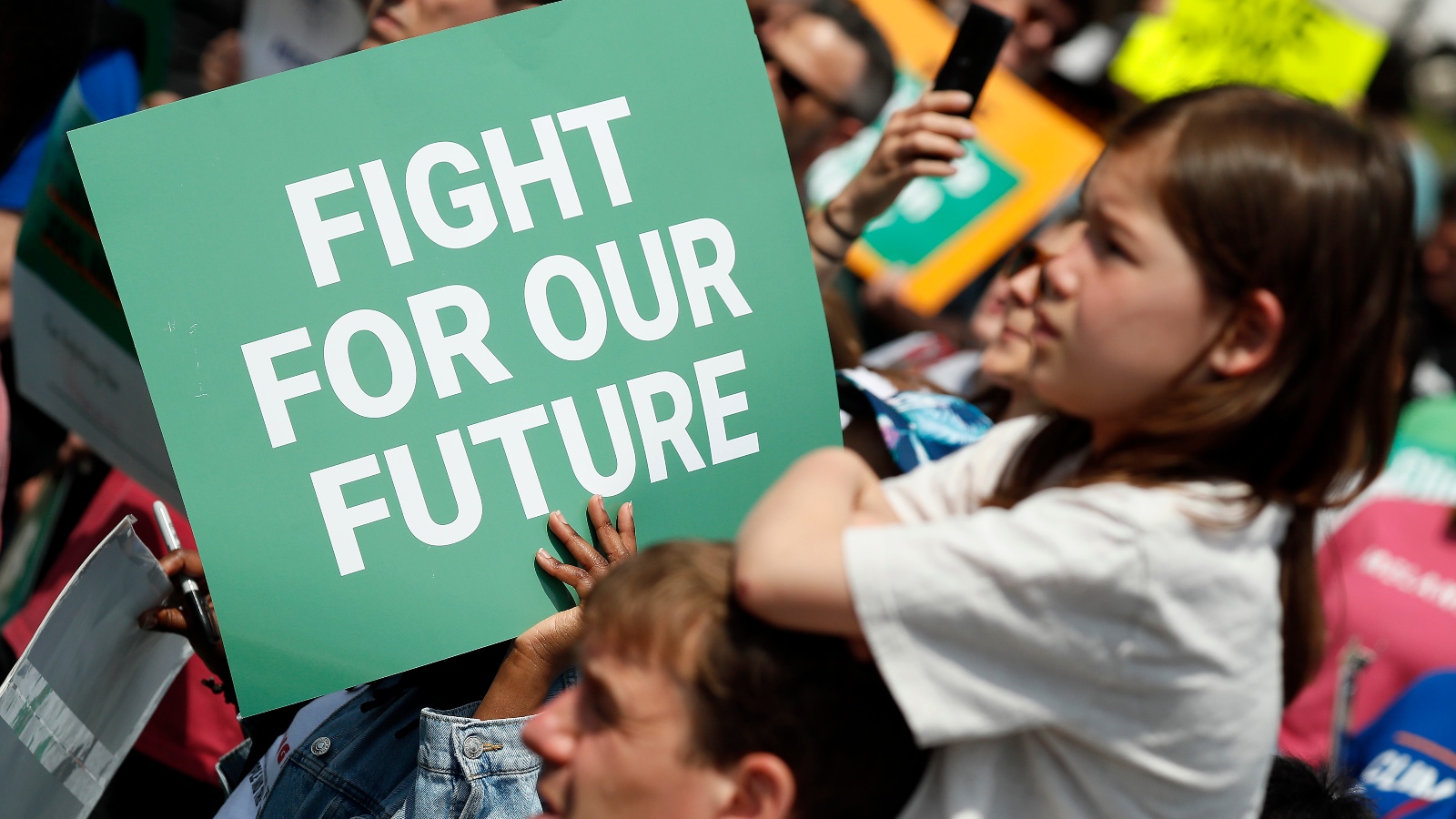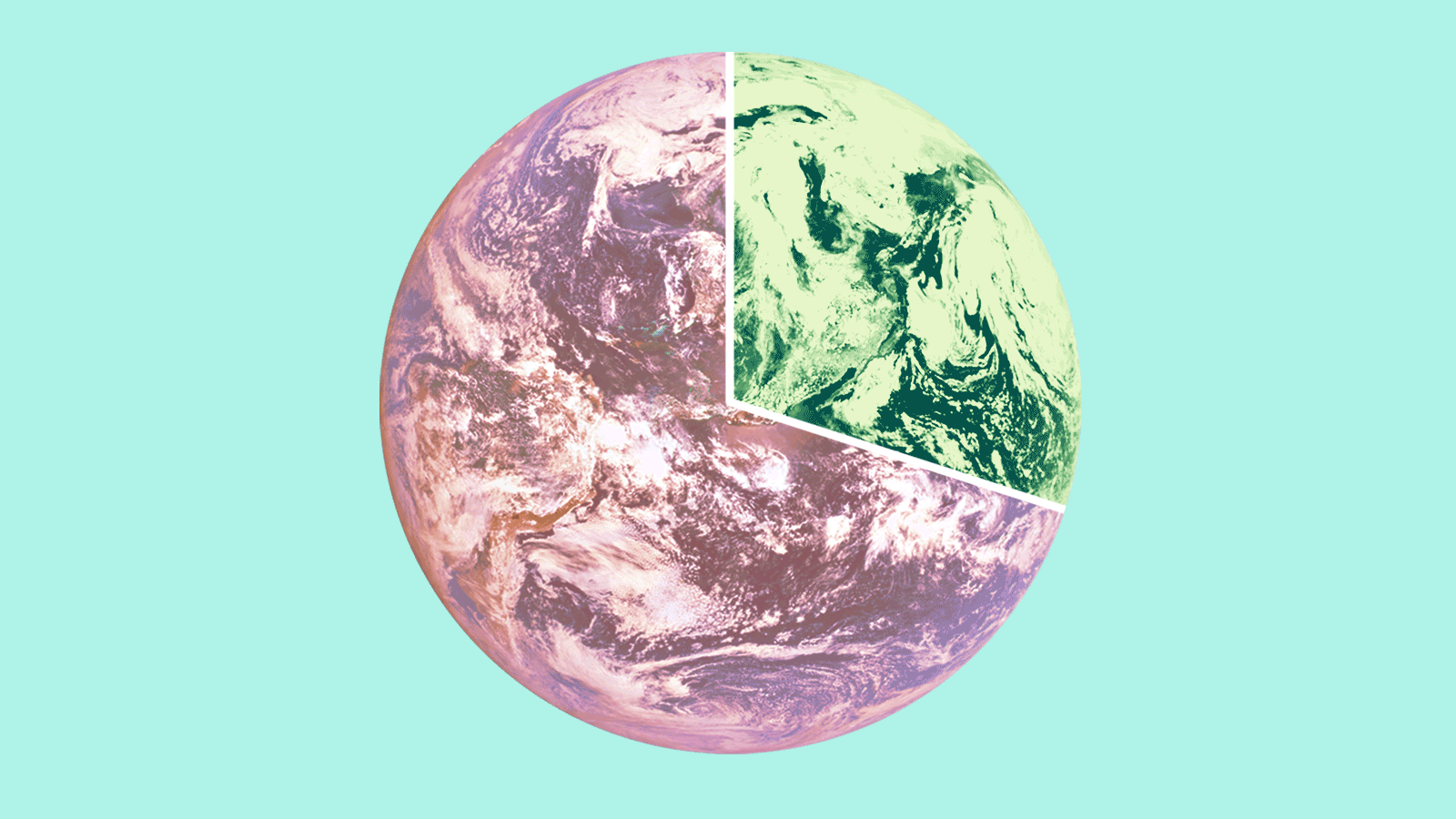It can be hard to guess what others are thinking. Especially when it comes to climate change.
People imagine that a minority of Americans want action, when it’s actually an overwhelming majority, according to a study recently published in the journal Nature Communications. When asked to estimate public support for measures such as a carbon tax or a Green New Deal, most respondents put the number between 37 and 43 percent. In fact, polling suggests that the real number is almost double that, ranging from 66 to 80 percent.
Across all demographics, people underestimated support for these policies. Democrats guessed slightly higher percentages than Republicans, but were still way off. “Nobody had accurate estimates, on average,” said Gregg Sparkman, a co-author of the study and a professor of psychology at Boston College. “We were shocked at just how ubiquitous this picture was.”
The research was published just two weeks after President Joe Biden signed the Inflation Reduction Act, the country’s most ambitious climate legislation to date. Some experts say it could be a turning point. Such sweeping legislation might signal to people that climate policies are popular enough to pass, paving the way for more policies that would help the United States reduce emissions.
The new study provides the most thorough look yet at the very meta question of what Americans think other people think about climate action. Sparkman and researchers at Princeton and Indiana University Bloomington surveyed more than 6,000 Americans last spring, asking them to estimate the percentage of people that would support the following policies: instituting a carbon tax that would return revenue to Americans, mandating 100 percent renewable energy by 2035, putting renewable projects on public lands, and adopting a Green New Deal. All the estimates barely topped a third. In fact, at least two-thirds of Americans support all of these policies, according to polling from the Yale Program on Climate Change Communication, and some policies, like renewables on public lands, have the support of four-fifths of the country.
But what happens if people aren’t aware of this support? They may think their opinions are unpopular, making them less likely to express those thoughts to their friends and family — which can lead to something called a “spiral of silence.” “People conform to their perception of social norms, even when those perceptions are wrong,” Sparkman said.
This dynamic could not only inhibit organizing, but also dampen politicians’ will to act. If elected officials believe climate policies are broadly unpopular, they may be less likely to vote for such measures. Preliminary research suggests that policymakers are susceptible to the same misperceptions that the public has about popular opinion, Sparkman said. One study found that congressional staffers underestimated the popularity of putting restrictions on carbon emissions in their local district.

Closing this misperception gap would be made easier by knowing what, exactly, is causing it. One theory is that mental shortcuts are leading people astray. “It’s really hard to envision millions of people at once and what they think, but we have to boil it down somehow,” Sparkman said. He suggested that people may be relying on top-of-mind examples to generate a picture of the country, thinking of a noisy, climate-denying minority and assigning them too much weight. Or they might imagine that basically no Republican would support these policies, knocking out almost half the country. In reality, virtually all Democrats, most independents, and about half of Republicans want action.
Then there’s the issue of media coverage presenting a skewed picture. Until recently, U.S newspapers gave opponents of climate action outsized sway, according to one study that analyzed articles from major outlets from 1985 to 2013. And it doesn’t help that perceptions of public opinion can sometimes lag behind by a decade or two. People may anchor their estimates on the past, failing to account for recent changes.
Making support for climate action more visible might help people understand how popular it really is. Sparkman’s research suggests that people who lived in states with more protests about climate change had a more accurate perception of how Americans felt about policies to address the crisis, even controlling for party affiliation.
Even a mental picture of a crowd clamoring for action might yield similar results. Informing people that a policy has widespread backing is an effective messaging tactic for mobilizing the public, said Danielle Deiseroth, a climate strategist and polling analyst at the think tank Data for Progress. It reinforces a sense that the policy is popular and gives people social “permission” to support it themselves.
Deiseroth hopes that the Inflation Reduction Act — projected to cut greenhouse gas emissions by 40 percent below 2005 levels by 2030 — could be another positive signal. “We already took the big step of passing a national investment in climate change,” she said. “That’s one step to show that this is popular enough that it passed in the Senate, and after many years, we finally passed a bill.”
When the government takes action on an issue, it can sometimes shift perceptions of social norms quickly, Sparkman said. Many people assume that beliefs drive action, but it’s often the other way around. A study last year found that people in the United Kingdom judged the risk of COVID-19 based on how drastic the policy response was: When the government imposed strict lockdowns, people began believing that the threat was more severe.
The Inflation Reduction Act could contribute to a “thunderclap of signals that, ‘Yes, as a country, we do care,’” Sparkman said. “It’s very high time for us to dispel this myth that Americans don’t care about climate change.”




